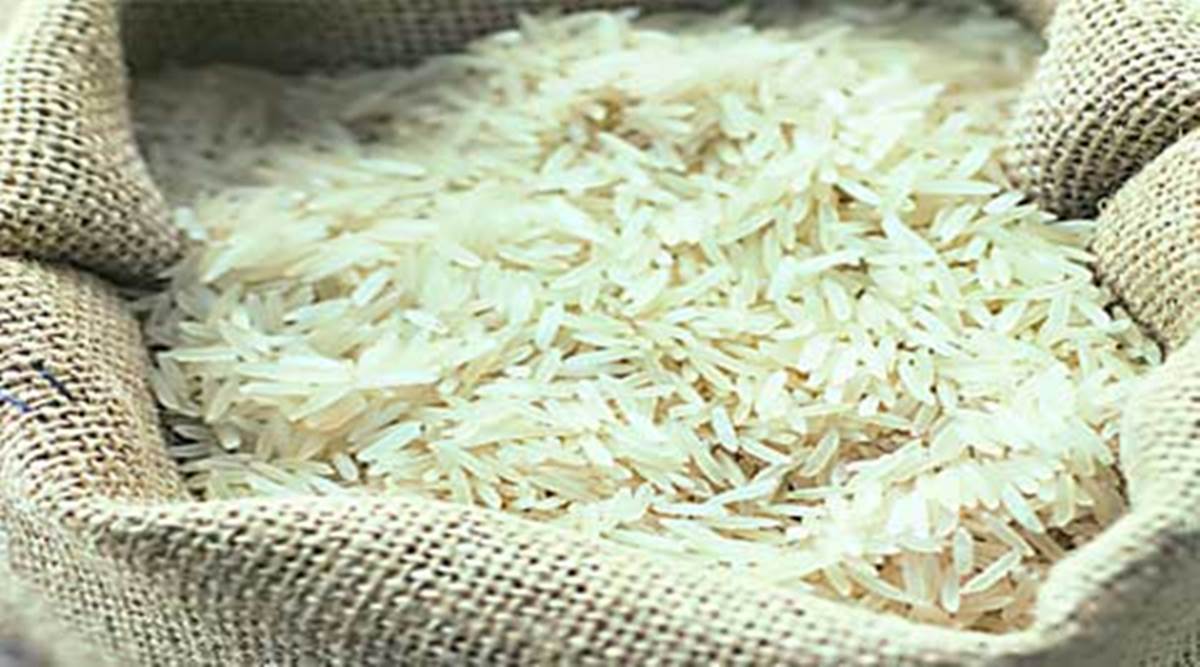 Punjab produces around 25-26 lakh tonnes (2.5 to 2.6 million tonnes) of Basmati annually, which is around 34 per cent of the total production of the country.
Punjab produces around 25-26 lakh tonnes (2.5 to 2.6 million tonnes) of Basmati annually, which is around 34 per cent of the total production of the country.Punjab’s basmati rice shelling industry — which has not only been meeting around 50 per cent of domestic needs of the premium grain, but also contributing 40-50 per cent of the total export of Basmati to various countries — has been heavily dependent on other states to make itself viable, having the capacity to mill Basmati worth Rs 25,000 crore.
Bamati is a long grain aromatic rice grown in the specific geographical area of seven states of the country including Punjab, Haryana, some districts of Uttarakhand, Uttar Pradesh (Western UP), Jammu & Kashmir, Himachal Pradesh and Delhi.
Punjab produces around 25-26 lakh tonnes (2.5 to 2.6 million tonnes) of Basmati annually, which is around 34 per cent of the total production of the country. In 2019-20, around 7.5 million tonnes (75 lakh tonnes) Basmati was produced in the country.
Punjab has a huge potential of increasing Basmati area because it usually covers 27-28 lakh hectares acreage under rice including around 5.50-6.50 lakh hectares under Basmati and remaining under paddy (parmal rice). The state can easily increase this area to double, which is good for its ground water, the shelling industry and the environment.
Of the total production of Basmati, 58 to 59 per cent (4.54 million tonnes) is exported annually and remaining nearly 41% (3 million tonnes) is consumed in the country.
To meet the 50 per cent domestic need and around 40-50 pet cent of the total export, Punjab needs at least 33-37 lakh tonnes (3.3-3.7 million tonnes) Basmati while Punjab is producing 7 to 11 lakh tonnes less Basmati against its total supply in the export and domestic markets. For these 7 to 11 lakh tonnes Basmati, it has to depend on UP, Uttarakhand and Delhi’s traders, who purchase at Narela market, which is Asia’s biggest rice and wheat mandi, from traders and farmers of UP, Haryana and Uttarakhand. The Basmati of these states — UP, Delhi and Haryana, and Uttarakhand — falls under the GI tag and has the same demand in the international market as Punjab’s Basmati.
“We have around 100 Basmati shelling units in Punjab, which have the capacity of milling over Rs 20,000 crore of Basmati, but are milling Basmati around Rs 15,000-16,000 crore so as to make the industry viable, said Ashok Sethi, a leading Basmati exporter and director, Punjab Basmati Rice Exporter Association.
Another leading exporter said, “We are getting around Rs 8,000-9,000 crore Basmati from Punjab and for the remaining we are dependent on other GI tag areas. While Punjab has huge potential to grow as per the need of the Basmati shelling industry as around 27-28 lakh hectares area is under rice here, only 6 to 6.50 lakh hectares is dedicated under Basmati while this area can be doubled easily if government supports the Basmati growers.”
According to Agricultural and Processed food Products Export Development Authority (APEDA) under Ministry of Commerce and Industry Government of India, in 2019, around 19.50 lakh hectares was under Basmati across seven GI states including maximum under Punjab (6.29 lakh hectares) and Haryana (8.43 lakh hectares), around 5 lakh hectares in UP and remaining less than one lakh hectares in four other GI states.
The biggest rice shelling industry is located either in Punjab or in Haryana. “Punjab’s farmers are ready to enhance the area under Basmati if they get assured price like paddy,” said Block Agricultural Officer Pathankot Dr Amrik Singh, adding that it is one of the best alternatives for Punjab’s farmers. A senior official at APEDA said that India is exporting Basmati to over 100 countries and this export can be increased further if a little more focus and support is provided to both farmers and exporters of the country.
Sethi said that in 2019, a total 44.54 lakh tonnes of Basmati worth Rs 34,000 crore was exported.